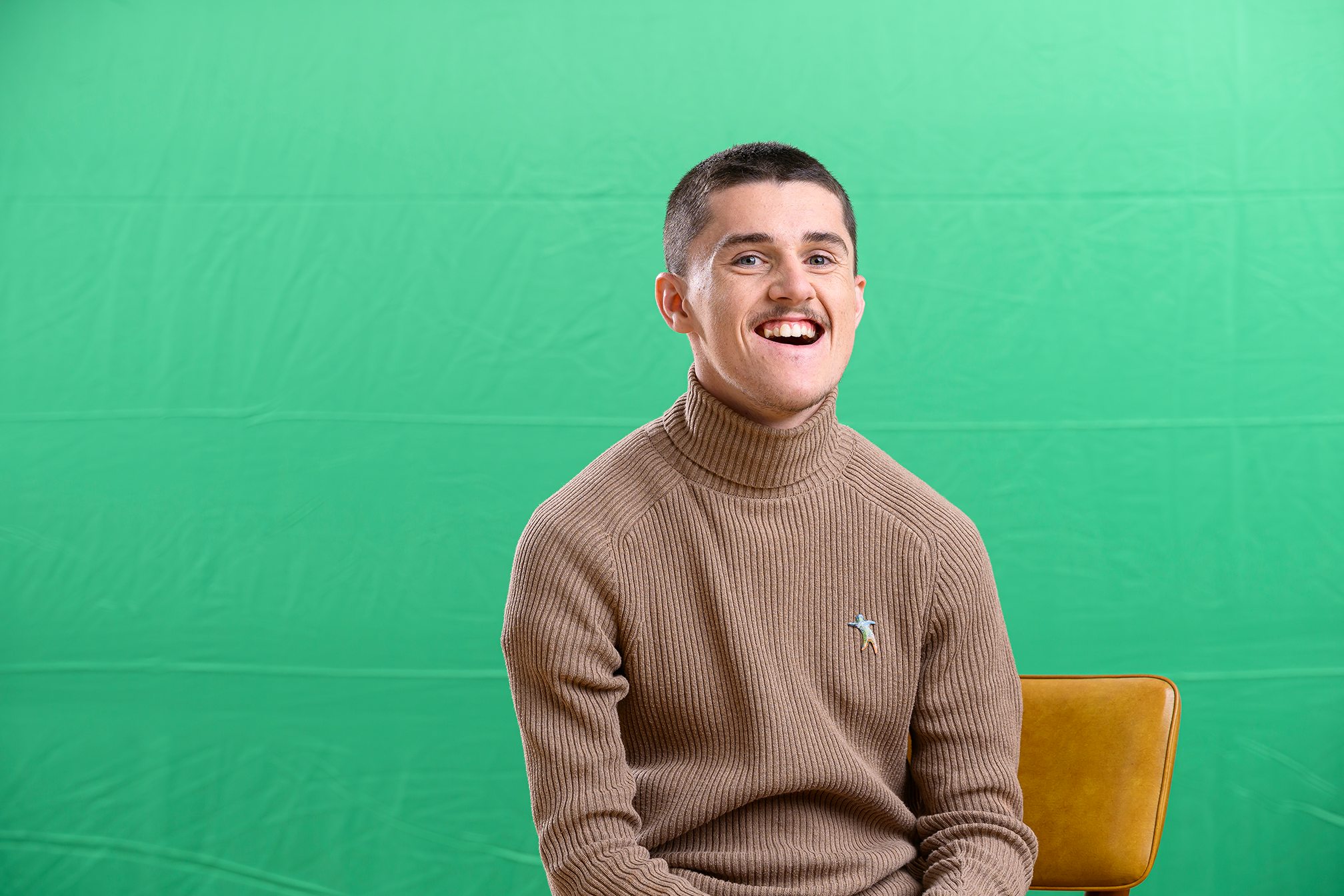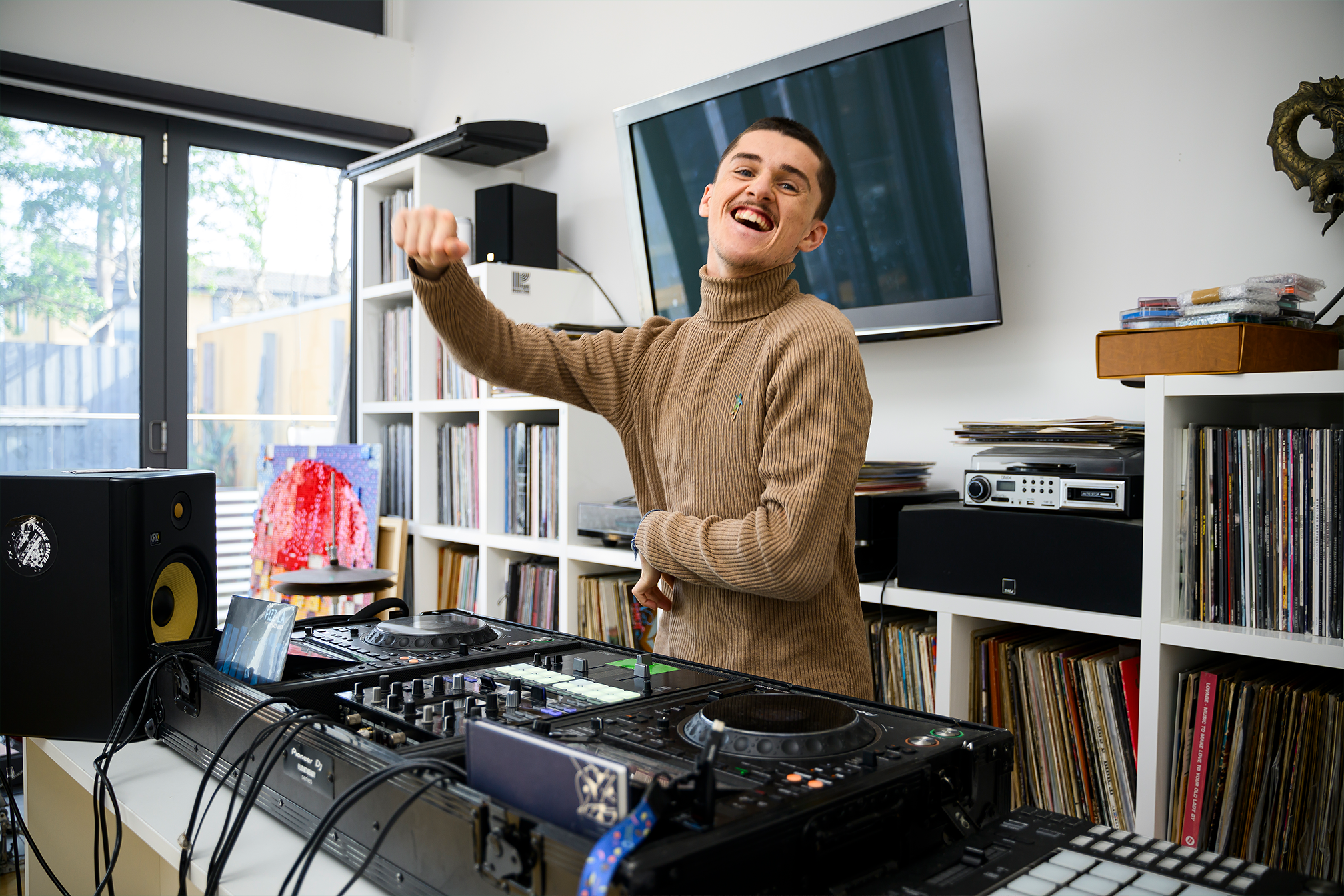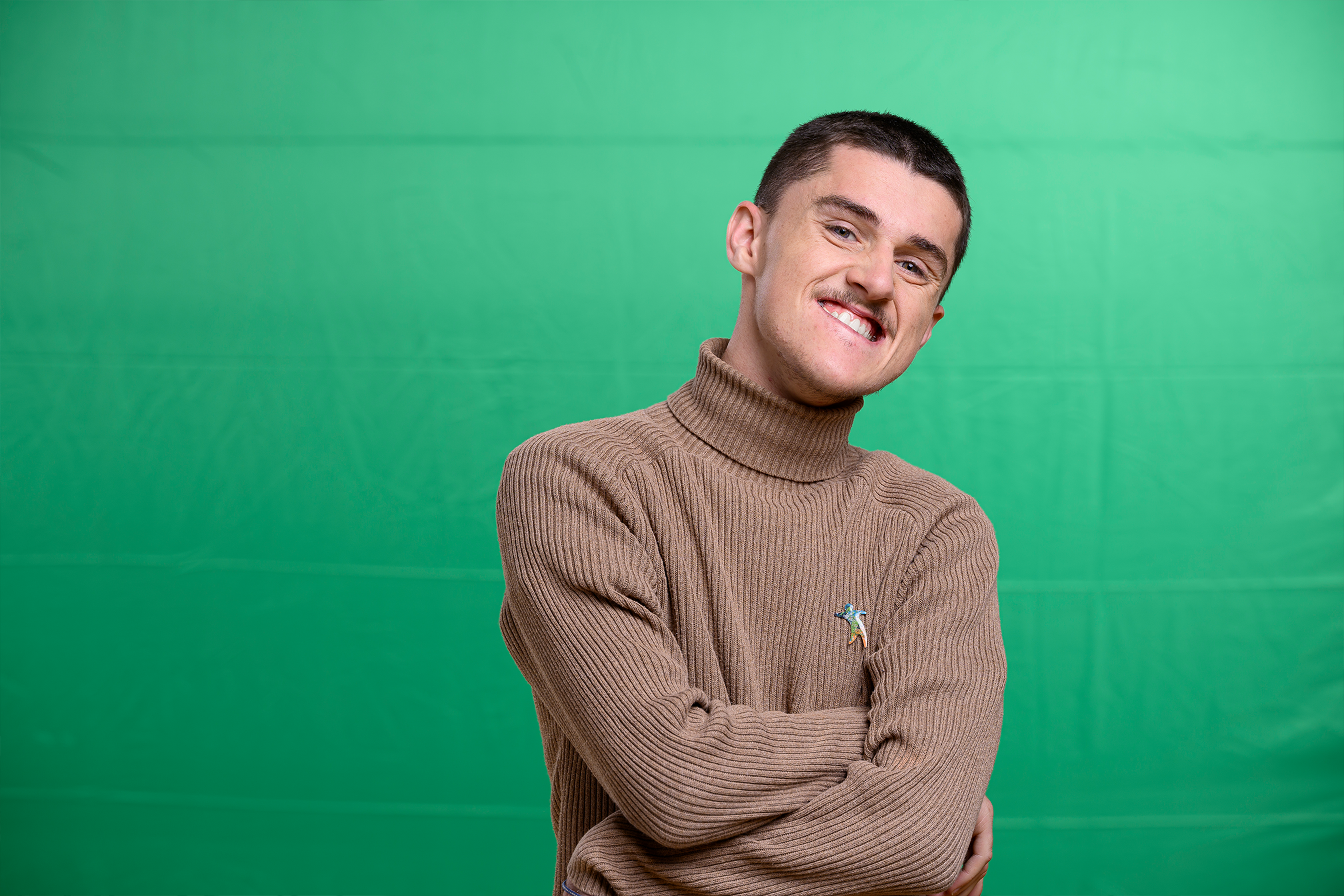 INTERVIEWS
INTERVIEWS
Music is DJ Cooper Smith's voice & captions
The IDPwD 2024 Australian Ambassador shares his story & his hopes for dance music accessibility.
‘Accessibility’ is a conversation taking place more and more within dance and nightlife communities in recent years. The broader community has long been responsible for pioneering many cultural conversations, particularly to do with race, sexuality and gender, with ‘accessibility’ conversations being primarily focused on people living with a disability and how they might interact with dance music.
Whether physical, mental or psychological, people living with a disability generally have a harder time making their way to a club, a festival, and particularly up on-stage.
Visibility of people living with a disability, particularly on occasions like International Day of People with Disability, has long been a crucial part of making our world a more accessible and accepting place.
This year, DJ Cooper Smith was one of IDPwD’s 2024 Australian Ambassadors. The Naarm-based DJ and producer has in the last few years taken to some of the most high-profile stages in the country, including AbilityFest and the Australian Tennis Open.
Despite living with cerebral palsy, Cooper’s commitment to music and dancing is done so with an enthusiasm rarely found among even the most passionate of artists. His commitment to awareness and accessibility comes through not only in his DJ work, but is reflected in his educational work at primary and high schools around the country.
To celebrate all of Cooper’s achievements thus far, and to shine a light on the core of what makes IDPwD what it is, we found time amongst his busy schedule to have a chat.

Q: Cooper! So nice to be in touch. What does being an ambassador for the 2024 International Day of People with Disability (IDPWD) mean to you?
DJCS: It means so much to me because it enables me to share my story and reach a wide audience. It can encourage other people with a disability to reach their goals and for the community to see someone with a disability smashing their goals. I was chosen amongst some amazing people this year. They had so many layers and brought so much to the conversation.
-
Q: Cooper could you give us a small rundown on your history with music, & what inspired you to start DJing?
DJCS: I have always loved music. My dad and my uncle Michael would always introduce me to different genres. During lockdown I started using an iPad program to mix music. Back at school I would practice at lunchtime and during maths in the stadium.
I loved mixing songs and watching people enjoy it while they were having their lunch. I then got my first real pair of decks and a mixer and still practice pretty much every day in my home studio.
Q: I’ve heard people say that you “use music as your voice and captions”. I’d love to know how you decide what you’re going to say through music?
DJCS: The type of music I play will be dictated by how I’m feeling emotionally on that night, and also the feeling within the room. I’m very good at reading a room and giving the audience what they need. People can be listening to my set and see past my disability and just see that we have music in common, and start a conversation.
-
Q: You’re regularly visiting primary & high schools, speaking with students about disability & inclusion. What is your experience of these sessions like, particularly when you tell them that you’re a DJ?
DJCS: I love speaking to students of all ages. During my sessions the students are free to ask me anything as I am very open and emotionally in touch. I have had some fantastic questions sometimes about disability and how I grew up, but also about how I set goals and achieve them, and how I work so hard. Kids ask me what my 5 year plan is, if I have been bullied (I haven't) and what football team I go for!
-
Q: What does the word ‘accessibility’ mean to you?
Accessibility to me means that everyone can access the things they want to, they might just do it a little bit differently.
For me, I have access requirements as I am a wheelchair user, so I need space, no steps and also someone to support my communication as my speech is difficult to understand.
-
Q: As a DJ performing on some of the country’s largest stages, what are some of the challenges you’ve had to come up against due to your living with a disability?
DJCS: Lots of the stages have steps which I am okay with, but ramps would be great to be installed too. I use DJ decks that have a touch screen as I cannot use my fine motor skills for other decks. I have learnt to use a variety of mixers. It just takes lots of practice. When I first started behind the decks I would get really tired but now I can do a set for 2 hours as I have built up my stamina and worked really hard in the gym on my balance and coordination. Having cerebral palsy means my muscles are moving all the time and I expend so much more energy than someone who is able bodied.
Q: What are some of the things you love most about Australia’s dance music culture?
DJCS: Everyone I have met and had experiences with have been really open and inclusive. Being present in this scene has created many conversations around inclusion and accessibility.
-

Q: What are some of the areas that you think it can improve?
DJCS: I would love to see ticketing improve as far as getting a wheelchair accessible ticket. I just want to be able to book my ticket online like everyone else, not have to tick a box then call someone or wait 3 weeks for a callback. Also, to see accessible viewing platforms at every venue and event.
I love that now I am visible in this scene I have so many allies who are helping me voice what I need which is less exhausting for me and my family.
-
Q: What advice would you give to punters on how they can make clubs & festivals a more accessible environment for people living with a disability?
DJCS: I think it comes down to attitude a lot of the time. I think people who organise the events should speak to people with lived experience as every disability is different. For me I would like to see easy ticketing, viewing platforms, step free entries and some space for me to wheel in and out.
-
Q: Who are some local Aussie artists you’re loving right now?
DJCS: I’m loving Jack Bradshaw who is a DJ, Dj Minx (Rachel) Torren Foot and Airwolf Paradise (Justin), and Dj Nay Nay.
-
Q: What sort of advice would you give to other people living with a disability, who might feel intimidated about getting into dance music?
DJCS: As a music goer, I would build your way up. Start at small local events and go with support and friends. Don't be afraid to make new friends.
As an artist, I would connect with mentors that can show you the way and go out to support local DJs to learn more about the scene.
Think of it like homework, you don't have to party all the time.
-
Q: What do you hope for in your future?
DJCS: In my future I hope to headline as an artist around the world. Continue to produce music. I have a dream of working with Angie McMahon as my vocalist.
To work with artists who think outside the box and to mentor young up coming DJ's, and to be a strong role model for young people with cerebral palsy.
-
Q: What do you hope to become, as a role model?
DJCS: As a role model I want to be someone who is passionate, genuine, driven and hard working. I also want to be approachable and humorous.
-
You can find more details about IDPwD here, and find Cooper via his Instagram here.
Jack Colquhoun is Mixmag ANZ’s Managing Editor, find him on Instagram.


